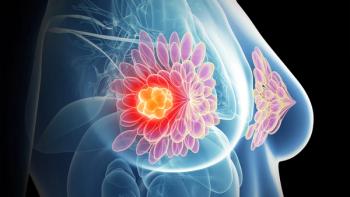
Dr. Weigert on Using Bilateral Ultrasound to Screen Women with Dense Breasts
Jean Weigert, MD, head of breast imaging for the Hospital of Central Connecticut, discusses a study conducted in Connecticut to see if the addition of screening breast ultrasound in women with mammographically normal but dense breasts has increased breast cancer detection.
Jean Weigert, MD, head of breast imaging for the Hospital of Central Connecticut, discusses a study conducted in Connecticut to see if the addition of screening breast ultrasound in women with mammographically normal but dense breasts has increased breast cancer detection. In 2009, legislation was passed that requires radiologists to inform women who undergo mammography if they are diagnosed with dense breast tissue.
Weigert says the enactment of the legislation was a great opportunity to gather data to see if the law helped. During the first two years that data was collected, researchers observed that approximately over 3 additional breast cancers per 1000 were detected, which is double the number of breast cancers found by just screening with mammogram alone. The breast cancers that were found were fairly small and node negative, Weigert says.
Weigert says she decided to continue collecting data for 2 more years. The data showed that 3.2 additional breast cancers per 1000 were found in patients who had breast tissue density greater than 50%. The types of cancers found in year 4, for example, were statistically significant cancers because most were less than a centimeter in size and were node negative, Weigert says.
Newsletter
Knowledge is power. Don’t miss the most recent breakthroughs in cancer care.































































































